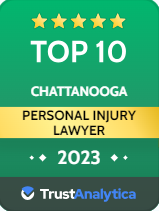Hopefully, a car accident is a rare occurrence in your life. But nearly everyone will go through an auto accident, large or small, at some point in their life. You need to know what to do, not just for legal purposes, but also for insurance purposes. Here are some tips you need to know to handle the aftermath of an auto accident:
Check for Injuries
If it is possible, pull over to the shoulder of the road to stay out of traffic. Then, check yourself and your passengers for injuries. If it is safe to do so and you are able to, go to the other car and check on the other occupants. Call 911 to report the accident and any injuries that happened. Follow the instructions of the operator.
Exchange Information
The next step is to exchange information with the driver. You will need their name, phone number, and insurance information. This will allow you to file a claim for the accident. Give them your information as well. Make a note if any of the drivers do not have insurance.
Do not claim that the accident was your fault, or their fault, to the other driver. That’s for the auto insurance people and the courts to determine. Claiming an accident was your fault can jeopardize your claim.
Document the Scene
Take photographs of the scene and the damage to your vehicle. This can serve as evidence for the insurance companies, and any potential court case you might file, about what happened. It will also help the insurance companies make a better estimate of what needs to be covered.
Give a Report
When the officer arrives, give your report of what happened. Be truthful and complete about the facts of the situation. Assuming nothing has happened that would require an arrest, such as a DUI, the officer will give you information that will let you contact the police station for progress on the investigation. The police should also be able to help tow your vehicle if needed.
Gather Financial Documentation
Once your car is at a mechanic, get an estimate for the repairs. If there were any personal injuries such as neck and back injuries, broken bones, or spinal injuries, get an estimate for medical bills as well, if you can. You may wish to call a lawyer at this point. They can advise you on what other documentation you might need to make a strong case to the insurance company.
Call the Insurance Company
Either on your own with good documentation, or with the help of a lawyer, contact the insurance company to report the incident and make a claim to cover the costs. Be prepared for a lot of questions and to file a statement. You might have to wait while the insurance company does their own investigation by calling the other party and the police to get their sides of the story.
When the insurance company comes forward with a settlement offer, your lawyer can help you determine whether or not it is a fair offer. Their first offer isn’t always the best one, but having a lawyer on your side can improve the likelihood that they won’t lowball you. If the offer is really unfair or violates the policy, you do not need to accept it. Your lawyer can assist you in fighting the offer in court.

 600+ five star reviews
600+ five star reviews








